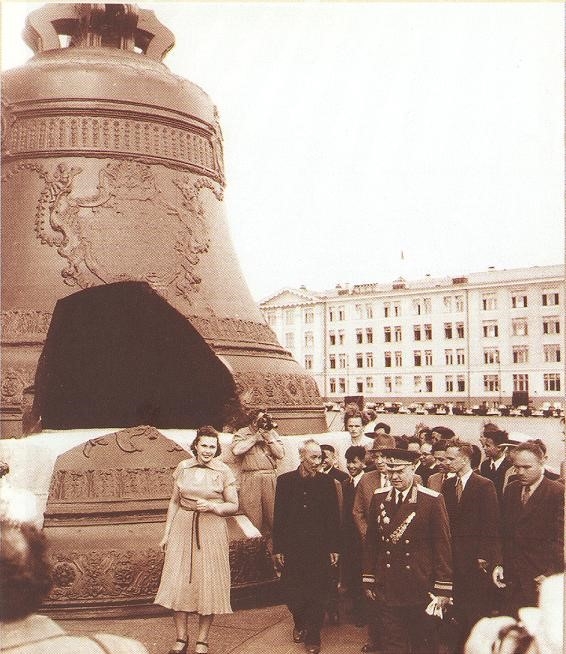Newspaper "The Truth Primorye", Agency of the Communist Party of the Russian Federation Branch Primorye Region (Far East, Russia), in May 2022 issue, put aside a whole page to review the important milestone in President Ho Chi Minh's life of revolutionary activities, praising his great merits, and highlighting the value of symbols of the Vietnam-Russia friendship relationship.

President Ho Chi Minh visited Moscow (the Soviet Union) in July 1955. (Documentary photo)
In the article ‘Ho Chi Minh: The one who brings glory’, the author stated that May 19, 1890 was the birthday of Ho Chi Minh, the first President of the Democratic Republic of Vietnam, the outstanding representative of the international communist movement and the Vietnamese national liberation movement. In Vietnam, President Ho Chi Minh is affectionately known as Uncle Ho. During his life, he lived simply in a small house and wore rubber sandals like other people.
The article emphasized that President Ho Chi Minh devoted his life to the national struggle for independence. The author reviewed details about President Ho Chi Minh's family and childhood. In 1911, Ho Chi Minh, now named Nguyen Tat Thanh, went to find a way to save the country. For decades, he lived and did revolutionary activities in France, the US and the UK. When he arrived in Paris, Nguyen Tat Thanh took the name Nguyen Ai Quoc. He joined the Association of Vietnamese patriots. The association published newspapers and leaflets calling for the fight for the rights of the colonists. During this time, Ho Chi Minh actively studied communist ideology and cared about many problems of oppressed peoples.
President Ho Chi Minh was a person who had an emotional attachment to Vladivostok (Far East, Russia). This was emphasized by the author in the article. Uncle Ho visited Vladivostok three times, in 1924, 1927 and 1934. He met the local Party leadership and fellow countrymen, visited libraries, and gave speeches to students and factory workers. In Vladivostok, Uncle Ho wrote a number of revolutionary articles about the political moment and task to liberate the country from invaders.
In memory of the great Vietnamese comrade in Vladivostok, a commemorative plaque was placed at the train station. In the park on Borisenko Street, a statue of Ho Chi Minh was erected, on the initiative of the "Vietnamese Association in Primorye" and with the support of the Primorye Regional Friendship Association with Vietnam. The monument has become a tourist attraction and a symbol of Vietnam-Russia friendship. In addition, the article also tells the story of the monument of Soviet cosmonaut Gherman Titov on Titov Island in Ha Long Bay of Vietnam.
On May 19 every year, on the occasion of President Ho Chi Minh's birthday, the people of Vladivostok city gather to offer flowers at his monument. The article quotes Vietnamese Consul General in Vladivostok Nguyen Dang Hien as emphasizing that, after years of wandering abroad, President Ho Chi Minh researched, learned, and determined the right goals and revolutionary path preparing for the birth of the Communist Party of Vietnam on February 3, 1930. He returned to the country to lead the Vietnamese revolution to victory in 1945, ended the more than 80 years of colonial rule, abolished feudalism which had lasted for thousands of years, and established the Democratic Republic of Vietnam, opening a brilliant new era in the glorious history of the nation./.
Compiled by BTA